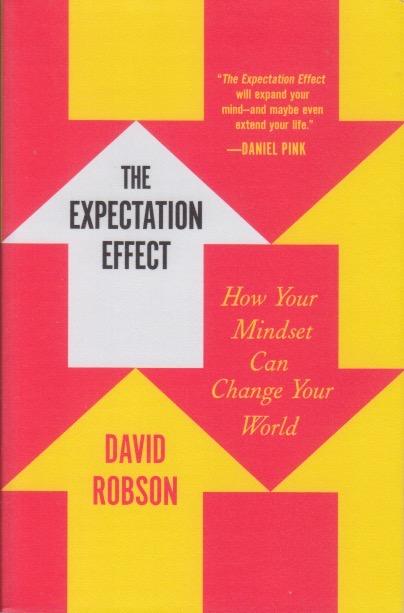
Our minds are our most powerful tools. Some of us wonder what reality is, and David Robson has written a very important book that the title explains: The Expectation Effect: How Your Mindset Can Change Your World. Now, before your woo-woo meter goes off, Robson is a science writer and everything in his book is backed by evidence. The basic idea is this: what we expect to happen often becomes our reality due to the “expectation effect.” The brain, as Robson describes it, is a prediction machine. And what it expects often takes place. In other words, belief matters. Probably the most famous example of this is the placebo. We all know that patients treated with placebos often recover just as well as patients given the active ingredient. That pill the doctor gives will heal them, and so it does. The brain expects it, and it happens. Belief.
This book also explores the nocebo response. This is where you expect something bad, and it happens. The most extreme examples of this, well documented, are when people are convinced an imaginary threat will kill them and they die of it. In fact, the book opens with consideration of such an occurrence where a cultural expectation led to otherwise unexplainable deaths among healthy Hmong populations fearing a night demon. Hysteria grew and so did the deaths. Robson also explores how hysteria leads to expectations that our brains carry out. He shows how training our expectations can help good self-fulfilling prophecies take place. Athletes, for example, can seem to do the impossible. Why? Partially training, yes. But also because of their mindsets. Their expectations. Their beliefs.
The implications of this are very broad. Everything from our health, to how we handle stress, to how food benefits our bodies, to how we age as we expect to. Robson is quick to point out that this isn’t a book to solve all our problems, but it is a book that demonstrates our minds do make things real. Or at least they can. It is filled with fascinating examples, backed with science, showing that even how a doctor or nurse introduces a shot “you’ll feel a bit of a sting” versus “you won’t feel a thing” can make a difference to how our body perceives it. And our brains can make our worries, or our hopeful expectations, real. Personally, I believe that there may be even more to this than Robson explores. But then again, I enjoy a bit of mystery. I believe in belief. Regardless, this is a life-changing book and I hope, for your own sake, that you’ll read it.
